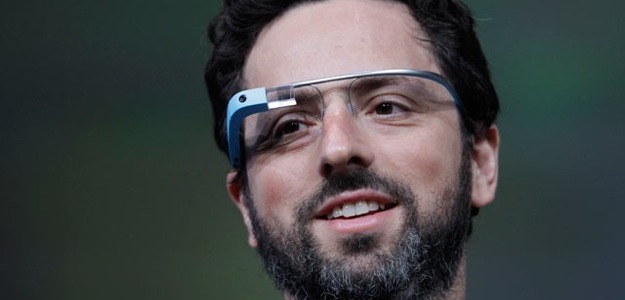 The upcoming launch of Google Glass already feels like something out of science-fiction. Think about it: It’s a pair of glasses that offer computer displays, act like a camera, and connect to the Internet. All in a pair of glasses. That’s the stuff Star Trek hadn’t even thought up.
The upcoming launch of Google Glass already feels like something out of science-fiction. Think about it: It’s a pair of glasses that offer computer displays, act like a camera, and connect to the Internet. All in a pair of glasses. That’s the stuff Star Trek hadn’t even thought up.
In fact, it’s so sci-fi that there are some who are suspicious about what this kind of next-gen technology will do to humanity. Namely, the group Stop The Cyborgs had just started a campaign in direct response to Google Glass (“and other technology trends”), stating on official website that it wants “to stop a future in which privacy is impossible and corporate control total.”
Sound a little over-the-top? Not according to the group itself, which claims that its concerns about Glass’ ability to surreptitiously record events through video, audio, or still photograph “go beyond privacy,” and have “serious consequences for human society.” All in all, it seems the team fear that blurry line between fantasy tech and real life. “There will no longer be any distinction between the ‘digital world’ and the ‘real world’. People will make decisions and interact with other humans in the real world in a way which increasingly depends on information that Google Glass tells them.”
It gets worse: “Gradually people will stop acting as autonomous individuals, when making decisions and interacting with others, and instead become mere sensor/effector nodes of a global network. There will be no room for multiple identities, hypocrisy or experimentation. There will be no space in which you can escape your online profile and the system will be controlled by a small group of corporations.”
Okay, that last part is perhaps getting a little ahead of itself in terms of paranoia. One of the group’s three founders, an individual who’s only going by “Adam,” told Ars Technica that the group’s concern is not about the innovation or technology, but rather the social culture and effects.
“If you think about what Google’s business model is, it started as a search engine, and then Google Analytics,” Adam said. “[Now, Google is] almost characterizing its [territory as being] the rest of the world. It’s a loss of space that isn’t online. [Google Glass] destroys having multiple identities, and I find that quite a scary concept.”
A scary concept that Adam isn’t willing to sell out, it turns out. When asked why he only gave the (possibly fake) name “Adam,” the Stop The Cyborgs founder admitted, “I want to get a job with Google, eventually. I’m part of that industry, so anything that I say in regard to that site could come back and bite me. I might not be able to afford my principles.”
This guy sounds like one of those hacker teens who break into a major site before getting hired to be their IT security. Remember, everyone: Having “serious concerns” about the future of human society only count when you don’t want to work for the guys you’re claiming are the dangerous ones.
Editors' Recommendations
- Google quietly launches a new text-to-video AI app
- Viral TikTok trend helping smart glasses recover from the disaster of Google Glass
- Google’s latest anti-spam change helps clean up your calendar
- Google Chrome 76 will stop websites from seeing users in Incognito Mode
- Google Drive will stop syncing with Google Photos in July


